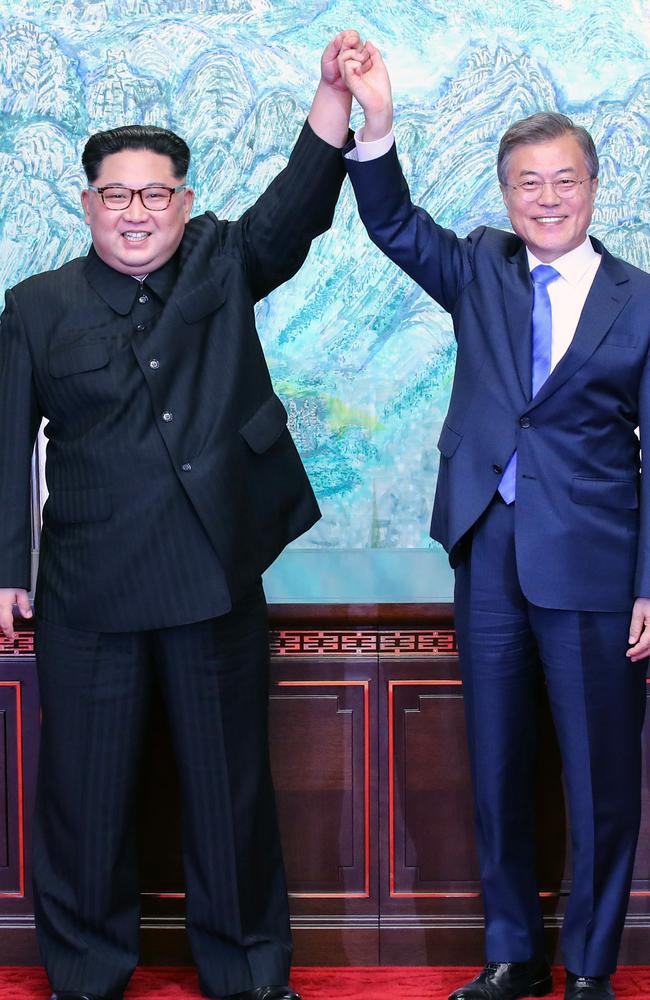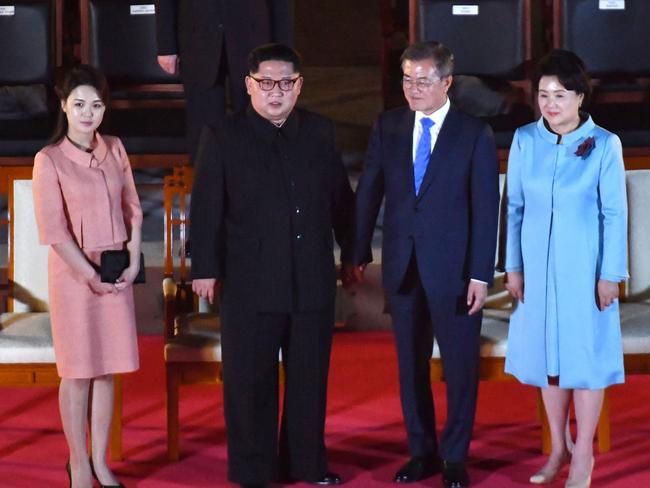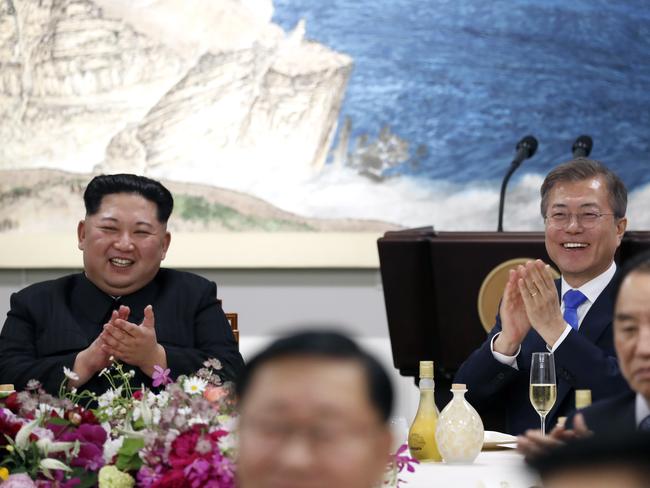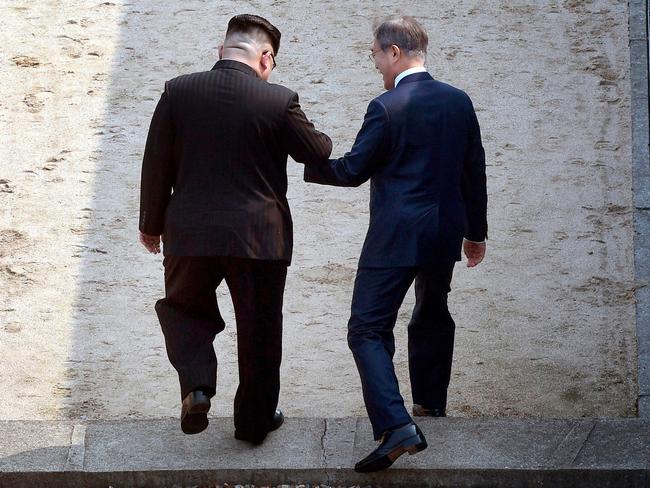After a historic meeting with South Korea, Kim Jong-un is joining the North with the rest of the world
KIM Jong-un has shown himself to be a man and made massive strides toward peace. So is the North Korean leader really a decent guy who just wants a fair go?
World
Don't miss out on the headlines from World. Followed categories will be added to My News.
FOR a day, Kim Jong-un was a hermit no more. He stepped into the light on Friday, revealing himself to the world in pictures that for once were not controlled by his own absurd image-making machine.
He showed himself to be a man, not the god he would have his suffering countrymen believe — one who may finally have realised that enough is enough. Is Kim really a decent guy who just wants a fair go?
“I came here to put an end to the history of confrontation,” said Kim, the first North Korean ruler to ever set foot in the South.
The historic meeting between Kim — and note that since Friday, he is being referred to as a leader rather than a tyrant — and South Korea’s President Moon Jae-in led to a joint statement confirming “the common goal of realising, through complete denuclearisation, a nuclear-free Korean Peninsula.”
MORE: Trump praises Koreas for historic meeting
MORE: South Koreans go wild over Kim Jong-un’s noodle joke

By having the courage to step outside his arcane realm, even if only for a few steps, Kim has demonstrated that something has changed. It paves the way for US President Donald Trump to have his own meeting with Kim, very soon.
Certainly, Kim visited Chinese President Xi Jinping at Beijing’s Forbidden City in November, but that was on safer ground. This time, he crossed to the South at Panmunjom, the so-called Korean Truce Village where the Korean Armistice Agreement was signed in 1953.
Kim seemed momentarily uncertain when he left the protection of his entourage to shake hands with Moon. If anything, he may have been less worried by an assassin’s bullet than fearing his own people might shove him over the border and stage an instant coup.

The meeting — which saw the two Korean leaders sitting in a garden, chatting intimately away from minders — has Kim on the way to achieving what many suspected he always wanted, even more than starting what for him would be an unwinnable nuclear war: attention and respect.
And Trump gave it to him. “KOREAN WAR TO END!” Trump tweeted, though only minutes before had tweeted: “Good things are happening, but only time will tell.”
John Blaxland, director of the ANU’s Strategic and Defence Studies Centre, said it had to be remembered that Kim is “capricious, he has a dark streak, his grip on power is ruthless and he’s looking to firm it up”.
“It’s looks so affirming and glowing, yet there are so many obstacles to a peaceful resolution to what has been an intractable conflict,” says Blaxland, who admits that times have gotten so strange, and leaders so unpredictable, that guessing what comes next is near-impossible.
“This meeting has raised very high expectations that will very hard to meet. It’s positive, but we need to be level-headed and sober in what it might mean.”
That revolves around what Trump and Kim might agree on when they meet. Trump, the businessman-president, will want a firm deal he can announce to the world.
If Trump is successful, Kim will formally agree to abandon his nuclear and intercontinental ballistic weapons program and permit total access for weapons inspectors.

In return, Kim would likely ask the US to withdraw from South Korea, where it has 23,500 troops plus support staff, along with bases and missile defence systems.
Trump may not be able to accommodate that wish. Likewise, he would have trouble giving his blessing to a formal peace treaty between to two Koreas. If that happened, it would follow there was no justifiable reason for the US to remain in South Korea.
“If Trump pulled out, the knock-on consequences are hard to fathom,” says Blaxland. “The message to China on the whole region would be, ‘It’s yours.’ That effectively is what it would be saying. It would send a chill wind through the US Administration and send shockwaves around the region.”
Japan, which relies on the US for protection, would revolt against a US withdrawal and could, suggests Blaxland, move to develop its own nuclear capability to defend itself.
A US departure from South Korea is improbable. So, what could Trump realistically offer Kim?
He could agree to end all sanctions; to cease the annual US-South Korean military exercises that so aggravate Kim; and to agitate for an international program to support the rebuilding of North Korea.
He could also guarantee not to support the reunification of the Koreas. That would satisfy China, because there would be no US troops or allies against its border. It would satisfy Kim, because his country’s sovereignty would be safeguarded.

That may be enough — remembering that Kim’s border crossing on Friday is ultimately about his own political survival. North Koreans may be isolated, but the Winter Olympics showed them how bereft they are compared to the prosperous South Koreans.
They want to join the world and Kim knows he must push the door slightly ajar.
paul.toohey@news.com.au


